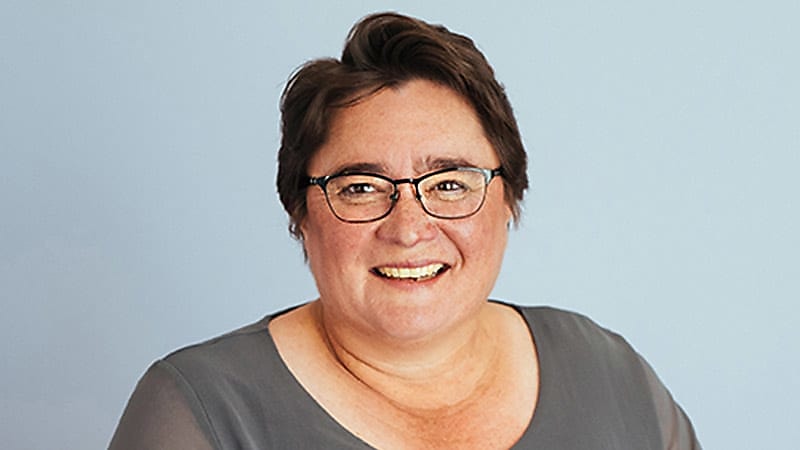Industry says legacy pensions omission is a ‘travesty’
The government might collect more revenue if it gave the relief in regard to legacy pensions because many clients would happily pay a little more tax to avoid some of the estate planning complexities associated with them, says a leading SMSF adviser.
Meg Heffron, managing director of Heffron, said the omission of any mention of legacy pensions in Tuesday night’s budget “beggars belief”.
She said an aspect of the budget that is always relevant is what’s not included, and that this year there were some things that didn’t rate a mention, including an amnesty to allow those with legacy pensions to escape them.
“This was despite being first promised by the previous government several years ago, this has still not seen the light of day. I called it a travesty in October. I have no better words now,” she said.
“It beggars believe that we can’t get some relief on legacy pensions. There’s surely minimal risk to revenue.
“Currently we are in the ridiculous position where changes made back in April 2022 allow some people to exit their legacy pensions but only by deliberately creating an excess over their transfer balance cap now.
“The process is unnecessarily complicated and requires quite sophisticated advice, just because the government can’t seem to get around to legislating the amnesty. The only thing that gives me hope at the moment is perhaps this will be addressed at the same time as legislating the new tax on people with more than $3 million in super.
“It would be a way to create at least one positive out of that change and would make it easier for some people with very large balances to remove money from super to avoid this new tax if they want to.”
SMSF Association head of policy Tracy Scotchbrook said while the amnesty around legacy pensions was proposed for a different purpose, there is now an added need for the amnesty, particularly in light of the proposed tax changes to allow people to restructure their super.
“There are those members who have low balances and can’t wind up an SMSF because they are trapped in a product and need the ability to move out.”
“But similarly with the $3 million threshold, people may need to restructure their affairs to deal with it.”
Tim Miller, SMSF technical and education manager for Smarter SMSF said “there is no doubt that the legacy pension issue is a little concerning".
“Other than the SMSF Association previously providing an update that they sought and got reassurance from the government that the legacy pension conversion was still on the table there has been nothing official from the government.”
“Importantly as part of our involvement with the consultation between the SMSF Association and Treasury about the ‘Better Targeted Superannuation Concessions’ it was highlighted that having an unresolved position on legacy pensions creates uncertainty about how defined benefit interests are considered for balance and earnings purposes but also that proceeding with the conversion measure will also ensure that some of these balances greater than $3 million are actually removed from the superannuation system.
“I note that the SMSFA did indicate in their submission that any Treasury position on defined benefit interests needs to consider that SMSFs still hold these pensions.”
It was also noted the budget made no mention of residency rules and their application to SMSFs.
Ms Heffron said relaxing residency requirements for SMSFs is still apparently on the agenda for the government but draft legislation has not been released or the issue was not discussed at all in the budget papers.
Mr Miller said as far as the SMSF residency rules are concerned, the government did announce in its 2022–23 budget, delivered post 1 July 22, the originally intended start date, that they would defer this measure to allow further time for the policy to be legislated and implemented.
“The 2023-24 budget did not make reference to the government not proceeding with this measure so the expectation is that this will still move ahead at a point in time, whether that be 1 July 2023 or 1 July 2024,” he said.
Ms Heffron said there was also no mention of continuing the current 50 per cent reduction in minimum pension payments beyond 1 July 2023, which indicates these will return to normal levels in 2023–24.
“It’s time to make sure funds have enough cash to pay much higher pension amounts next year,” she said.
“Or there may be some members considering extra payments now (above the minimum required for 2022–23) who decide to hold off until July 2023 to make up some of next year’s payments.
“There had also been murmurings that the government might freeze the transfer balance cap so that it wasn’t indexed (increased) from $1.7 million to $1.9 million from 1 July 2023 in line with current legislation.
“No announcements presumably mean that increase will go ahead as planned – with all the interesting planning consequences we’ve discussed before that relate to both contributions and pensions. Remember that even when the standard transfer balance cap is increased, not everyone will have a transfer balance cap of $1.9 million – some people will stay on $1.6 million or $1.7 million and others will receive just some of the $200,000 increase.”








